The process of controlling unwanted loud sounds using soundproof materials is called soundproofing. Different types of soundproofing materials are used according to the type and source of noise, structure of the building, and the amount of noise needed to be dampened. Read More…
Founded in 2019, DDS Acoustical Specialties stands at the forefront of the acoustic solutions industry, boasting a cumulative experience of more than 45 years. With a commitment to excellence, we specialize in the design, management, and installation of cutting-edge noise control and soundproofing products that cater to the unique needs of businesses across the nation. As we continue to evolve...
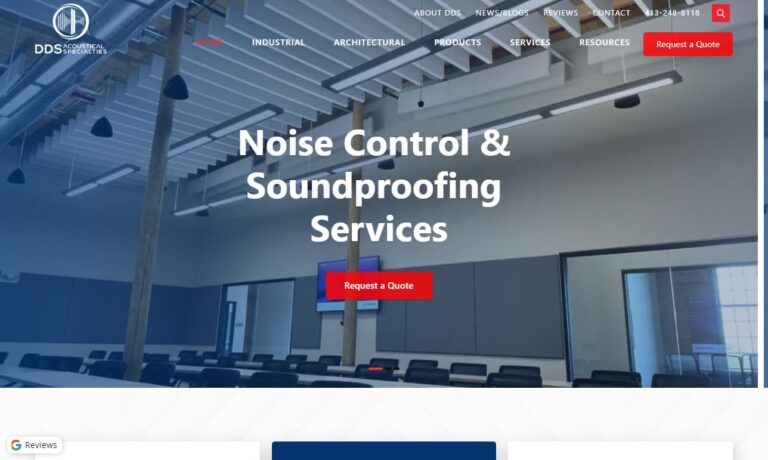
At Kinetics Noise Control, we present ourselves as a specialized provider of noise control solutions engineered to improve acoustic performance, protect equipment, and create more comfortable and compliant environments. We focus on controlling sound and vibration at the source and along the transmission path, developing systems that reduce unwanted noise while maintaining operational efficiency.
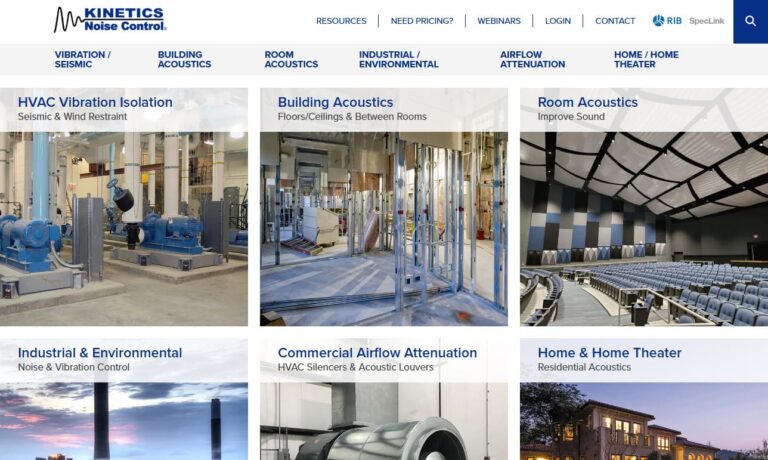
At Acoustical Systems, Inc., we present ourselves as a dedicated provider of noise control solutions designed to reduce unwanted sound, improve acoustic performance, and support safer, more comfortable environments. We focus on addressing noise and vibration challenges at their source and throughout the surrounding structure, applying proven acoustic engineering principles to deliver effective,...
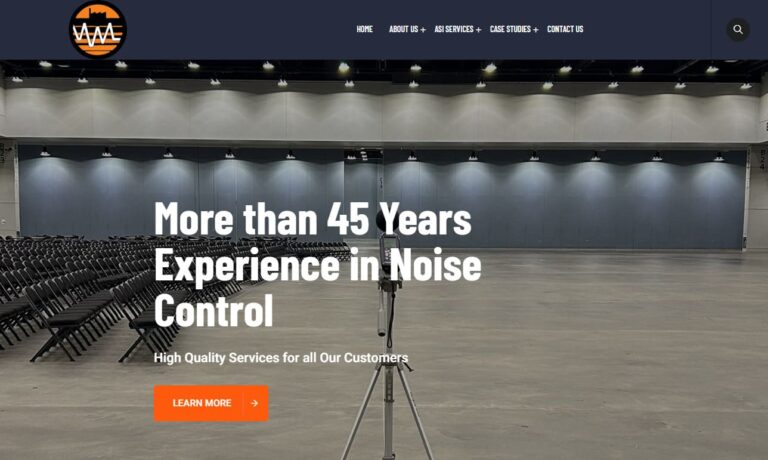
Isotech, Inc. offers a wide range of Noise Barrier products to contain/reduce/block the noise path. These include flexible portable or permanent enclosures or sheets and rolls of mass loaded vinyls, quilted barrier composites and absorber barrier composites. A noise barrier treatment is extremely effective in reducing overall noise levels depending on the extent that the noise barrier blocks the...

More Sound Barrier Companies
Sound-Proofing: Understanding the Basics and Importance
Sound is a form of energy that travels through the air as vibrations, impacting both comfort and privacy in residential, commercial, and industrial environments. Soundproofing materials are engineered to reduce or block these vibrations, effectively minimizing unwanted noise transmission from the source to the recipient's ear. Whether you’re looking to improve the acoustics in your home theater, insulate a recording studio, reduce industrial machinery noise, or create a peaceful workspace, soundproofing plays a crucial role in enhancing quality of life and productivity.
Interested in learning how to soundproof a room or which materials block noise most effectively? Explore our comprehensive guide below for insights into industry-leading solutions, their applications, and how to choose the right soundproofing system for your needs.
Materials Used for Sound Barriers: Types and Properties
The selection of material for sound barriers is critical, as different materials either absorb, dampen, or reflect sound waves. Choosing the right acoustic barrier depends on the specific use case, such as highway noise reduction, industrial sound insulation, or residential privacy. Here’s an in-depth look at common sound barrier materials and their unique properties:
Concrete
Concrete is widely recognized as one of the most effective materials for constructing sound barriers, particularly in infrastructure applications such as highway noise walls and urban soundproofing. Its dense composition offers superior mass and rigidity, making it highly efficient at blocking low-frequency and high-frequency noise. Concrete barriers are often preferred for long-term, permanent installations where durability and weather resistance are paramount. They are also vandal-resistant and require minimal maintenance, making them a cost-effective solution for municipalities and large-scale projects.
Steel & Aluminum
Steel, along with aluminum, is frequently used for sound barrier construction in both industrial and commercial environments. These metals are lightweight relative to concrete and are easy to fabricate and install. Steel sound barriers are valued for their structural integrity and corrosion resistance, especially when coated or galvanized. However, because steel is highly reflective, it may not be suitable in areas where sound absorption is the primary objective, such as densely populated neighborhoods or near sensitive facilities. For applications requiring both structural strength and acoustic performance, steel barriers can be combined with absorptive materials or perforated metal panels filled with acoustic insulation.
Acrylic and Polycarbonate
Acrylic and polycarbonate are transparent sound barrier materials commonly used where visual aesthetics and light transmission are important, such as along highways, in office buildings, or near scenic locations. These clear sound barriers effectively block noise while preserving sightlines, making them ideal for urban parks, pedestrian bridges, or mixed-use spaces. Acrylic and polycarbonate panels are UV-resistant, weatherproof, and can be custom-shaped for architectural integration, though they tend to be more expensive than opaque alternatives.
Wood
Pressure-treated wood is a versatile and visually appealing option for sound barrier fencing. Wooden barriers blend naturally with landscaping and are often chosen for residential privacy fences, garden sound barriers, or decorative acoustic screens. While wood is cost-effective and relatively easy to transport and install, its acoustic performance is generally best when combined with other dense materials. The main drawback of wood is its limited lifespan compared to concrete or metal, as it can be susceptible to weathering, rot, and insect damage over time. Regular maintenance or integration with composite panels can extend its longevity.
PVC Composite
PVC composite materials offer a modern, cost-effective, and low-maintenance solution for sound barrier walls. These synthetic barriers are lightweight, weather-resistant, and highly durable, making them suitable for both permanent and temporary noise control applications. PVC composites can be engineered to provide high levels of sound attenuation and are often used for construction site barriers, event noise screens, and modular noise walls. Echo barriers, a leading example, combine robust performance with portability, allowing for rapid installation and repositioning as project needs evolve.
Still uncertain about which barrier material suits your project? Ask yourself: "Do I need a permanent or temporary sound barrier?" "Is visual impact or transparency important?" "What are the local climate and maintenance requirements?" Use these questions to guide your comparison of acoustic barrier materials and discover the best fit for your soundproofing goals.
Products Used as Sound Barriers: Solutions for Every Environment
Sound barrier products are designed to address a wide range of noise control challenges, from home soundproofing to industrial noise abatement. Below, we profile the most commonly used soundproofing materials, acoustic insulation solutions, and specialty products for residential, commercial, and outdoor applications:
Acoustic Membrane
- Acoustic membranes are dense, flexible layers designed to block airborne sound transmission through walls, floors, and ceilings. They are easy to install, long-lasting, and deliver exceptional noise reduction—making them ideal for use in apartments, offices, and studios.
- Available in various thicknesses and levels of sound attenuation, acoustic membranes are often installed beneath drywall, within flooring assemblies, or as part of modular partition systems.
- While highly effective, acoustic membranes can be more expensive than basic insulation, but their performance often justifies the investment in noise-sensitive environments.
Acoustic Mineral Wool Cavity Insulation
- Mineral wool (or rockwool) insulation, such as QuietFiber, is renowned for its dual-purpose thermal and acoustic properties. It’s highly effective at absorbing both sound and heat, making it a staple in soundproof wall assemblies, acoustic panels, and bass traps.
- Used in commercial buildings, recording studios, and multifamily residences, mineral wool fills wall cavities and traps airborne noise, significantly reducing sound transfer between rooms.
- It’s affordable, rigid, easy to cut, naturally fire-resistant, and moisture-resistant—ideal for applications from ceiling baffles to subfloor insulation.
- Caution: Cutting mineral wool may release particulates; proper protective equipment should always be used during installation.

Fiberglass Insulation Boards & Batts
- Fiberglass is a popular sound-absorbing material used in home theaters, music studios, offices, and HVAC systems to dampen a broad spectrum of frequencies.
- Available as rigid boards or flexible batts, fiberglass insulation is easy to cut and fit into wall cavities, ceiling panels, or custom acoustic enclosures.
- Due to its irritant nature, installers should wear gloves, masks, and protective clothing when handling fiberglass products.
- Fiberglass panels are affordable and offer high performance when combined with other soundproofing elements, such as resilient channels or mass loaded vinyl.
Resilient Channels & Sound Isolation Clips
- Resilient channels are metal or timber strips featuring strategically placed holes and gaps to decouple drywall from framing, reducing the direct transmission of sound vibrations.
- Sound isolation clips further enhance this decoupling effect, creating a "floating" wall or ceiling assembly that dramatically improves soundproofing performance.
- These components are cost-effective and relatively simple to install but require careful attention to detail for optimal results.
- Ideal for home theaters, apartments, hotels, and offices where structure-borne noise is a concern.

Anti-Vibration Floor Mats
- Anti-vibration mats are engineered to reduce impact noise and vibration transmission from appliances, heavy machinery, gym equipment, and HVAC units.
- These rubber or foam mats are easy to install—simply place them beneath equipment to immediately dampen noise and vibration.
- Commonly used in industrial plants, fitness centers, server rooms, and residential laundry areas.
- Looking to minimize machinery noise in your workspace? Consider anti-vibration mats as a cost-effective first step toward a quieter environment.
Acoustic Sealant and Caulk
- Specialized acoustic sealants and caulks are formulated to fill gaps, cracks, and seams in walls, floors, and ceilings, preventing sound leaks and air transfer.
- These products remain flexible after curing, maintaining their sound-dampening properties over time.
- Acoustic caulk is ideal for sealing perimeter joints, electrical boxes, and plumbing penetrations where traditional sealants would fail to block noise.
- Affordable and easy to apply, acoustic sealants are essential for achieving a truly soundproofed assembly.

Sound Absorber Panels
- Sound absorber panels, such as Acoustiblok Quiet-Cloud, are designed to absorb reverberation and echo in large, open spaces. These panels are commonly installed on walls and ceilings in gymnasiums, theaters, classrooms, open-plan offices, and game rooms.
- Available in a variety of colors, sizes, and shapes, acoustic panels can be integrated seamlessly into any décor while delivering high-performance noise reduction.
- While installation costs may be higher, the improvement in speech clarity and comfort makes sound absorber panels a preferred choice for educational and hospitality environments.
- Curious about how acoustic panels work or which panels are best for your space? Explore our resources or contact an expert for tailored recommendations.

Soundproof Curtains and Blankets
- Soundproof curtains and blankets offer a flexible, portable, and affordable solution for reducing noise in homes, offices, music studios, and nurseries. Constructed from thick, multi-layered fabrics, these products absorb sound and block noise from entering or leaving a space.
- Easy to install and remove, acoustic curtains can be hung over doors, windows, or walls to address temporary or seasonal noise concerns.
- Soundproof blankets are often used in industrial settings, construction sites, or as movable partitions during events.
- Looking for a quick, non-permanent noise solution? Soundproof curtains and blankets may be the perfect fit.
Acoustic Fencing (External Noise Barriers)
- Acoustic fencing is specially designed for outdoor noise control, such as along highways, around construction sites, or in residential backyards.
- Properly sized and positioned, acoustic fences block and absorb noise from traffic, neighbors, or industrial activities, improving outdoor comfort and property value.
- Acoustifence is a roll-form material that can be retrofitted to existing fences, providing a substantial upgrade to their noise-blocking capabilities.
- Though more expensive, the durability and performance of external acoustic fencing justify the investment, especially in high-noise environments.

Acoustic Absorber Panels (Advanced Technology)
- Advanced acoustic absorber panels utilize cutting-edge materials, such as hydrophobic glass beads, to deliver exceptional noise reduction in both indoor and outdoor settings.
- These panels are lightweight, highly durable, non-combustible, chemically inert, and resistant to water and heat, making them suitable for harsh or exposed environments.
- Often used in transportation infrastructure, industrial facilities, and premium architectural projects where complete noise control is required.
- Though typically more expensive, these panels are the solution of choice where conventional products fall short.
Industrial Acoustic Soundproof Panels
- Industrial-grade soundproof panels are constructed from high-strength steel and aluminum, engineered to mitigate intense noise from heavy equipment, compressors, turbines, and other high-output sources.
- These panels are designed to withstand challenging conditions, including exposure to moisture, sunlight, chemicals, and temperature extremes.
- Acoustiblok All Weather panels, for example, feature multiple layers for acoustic diffusion and are suitable for use in factories, power plants, data centers, and outdoor machinery enclosures.
- These panels require professional installation but deliver reliable, long-term noise abatement for the most demanding industrial applications.

Applications and Use Cases: Where Sound Barriers Make a Difference
Sound barriers are utilized across a variety of industries and environments, each with specific acoustic challenges and requirements. Understanding your unique use case is key to selecting the right noise control solution. Here are some common applications:
- Residential Soundproofing: Reduce noise from neighbors, traffic, or nearby construction by installing soundproof windows, acoustic panels, or soundproof curtains in homes and apartments.
- Commercial and Office Spaces: Improve speech privacy and reduce distractions in open-plan offices, conference rooms, call centers, and healthcare facilities through the use of modular sound barriers, acoustic ceiling tiles, and wall panels.
- Industrial Noise Control: Protect workers and comply with OSHA noise regulations by installing industrial acoustic panels, anti-vibration mats, and enclosure systems around loud machinery and equipment.
- Transportation Infrastructure: Highway sound barriers, railway noise walls, and airport acoustic fencing are vital for minimizing noise pollution in urban and suburban environments.
- Educational and Institutional Settings: Enhance learning environments in schools, universities, and libraries with sound absorber panels, resilient channels, and acoustic insulation for classrooms and auditoriums.
- Hospitality and Entertainment: Ensure guest comfort in hotels, restaurants, theaters, and event venues by integrating decorative acoustic panels, soundproof doors, and absorptive ceiling systems.
- Outdoor and Recreational Spaces: Install acoustic fencing, berms, or landscape-integrated barriers to shield parks, playgrounds, and golf courses from intrusive noise.
Want to know which sound barrier solution fits your industry? Browse our in-depth application guides or contact a soundproofing expert for personalized advice.
Benefits of Advanced Soundproofing Solutions
Investing in high-quality sound barriers and noise reduction systems delivers a host of benefits for both individuals and organizations:
- Enhanced Privacy: Prevent sound transmission between rooms, offices, or adjacent properties, ensuring confidential conversations stay private.
- Improved Comfort: Create quieter, more peaceful environments for work, study, relaxation, or sleep.
- Increased Property Value: Effective noise control is a selling point for residential and commercial properties, attracting tenants or buyers seeking tranquility.
- Regulatory Compliance: Meet local or national noise abatement regulations, such as OSHA standards or environmental noise ordinances.
- Worker Safety and Productivity: Protect employee hearing, reduce fatigue, and boost focus by minimizing unwanted background noise in industrial and office environments.
- Versatile Solutions: Choose from temporary, portable noise barriers to permanent, architectural sound walls, tailored to your specific needs and budget.
Have questions about the ROI of noise control investments or how to measure soundproofing effectiveness? Read our expert articles or request a free consultation.
Choosing the Proper Sound Barrier Manufacturer: Tips for Buyers
To ensure the most favorable outcome when purchasing sound barriers from a sound barrier manufacturer, it’s essential to compare several suppliers and evaluate their products, expertise, and service quality. Use our comprehensive directory of sound barrier manufacturers to review business profiles, product lines, and areas of specialization.
- Each manufacturer’s profile page highlights their core competencies, including experience in residential, commercial, or industrial soundproofing, as well as custom barrier design and installation services.
- Use the integrated contact form to request detailed information, technical specifications, or a personalized quote directly from the manufacturer.
- Leverage our patented website previewer to quickly compare company websites, product catalogs, and customer reviews without leaving our directory.
- Take advantage of our streamlined RFQ (Request for Quote) form to efficiently contact multiple sound barrier companies with a single inquiry.
When comparing sound barrier manufacturers, consider the following decision factors:
- Product Range: Does the manufacturer offer the specific barrier types and accessories you need?
- Customization: Can they tailor acoustic solutions to your project's unique requirements?
- Installation Support: Do they provide professional installation services or technical guidance?
- Certifications and Quality Standards: Are their products tested for acoustic performance and compliant with relevant regulations?
- Lead Times and Logistics: Can they meet your project schedule and handle delivery/installation in your area?
- Warranty and After-Sales Support: What kind of warranty or service support is included?
Ready to request a quote or compare leading sound barrier manufacturers? Visit our directory and connect with the industry’s top noise control specialists today.
For more information, explore our noise control resources, browse soundproofing materials guides, or contact our experts for tailored recommendations.


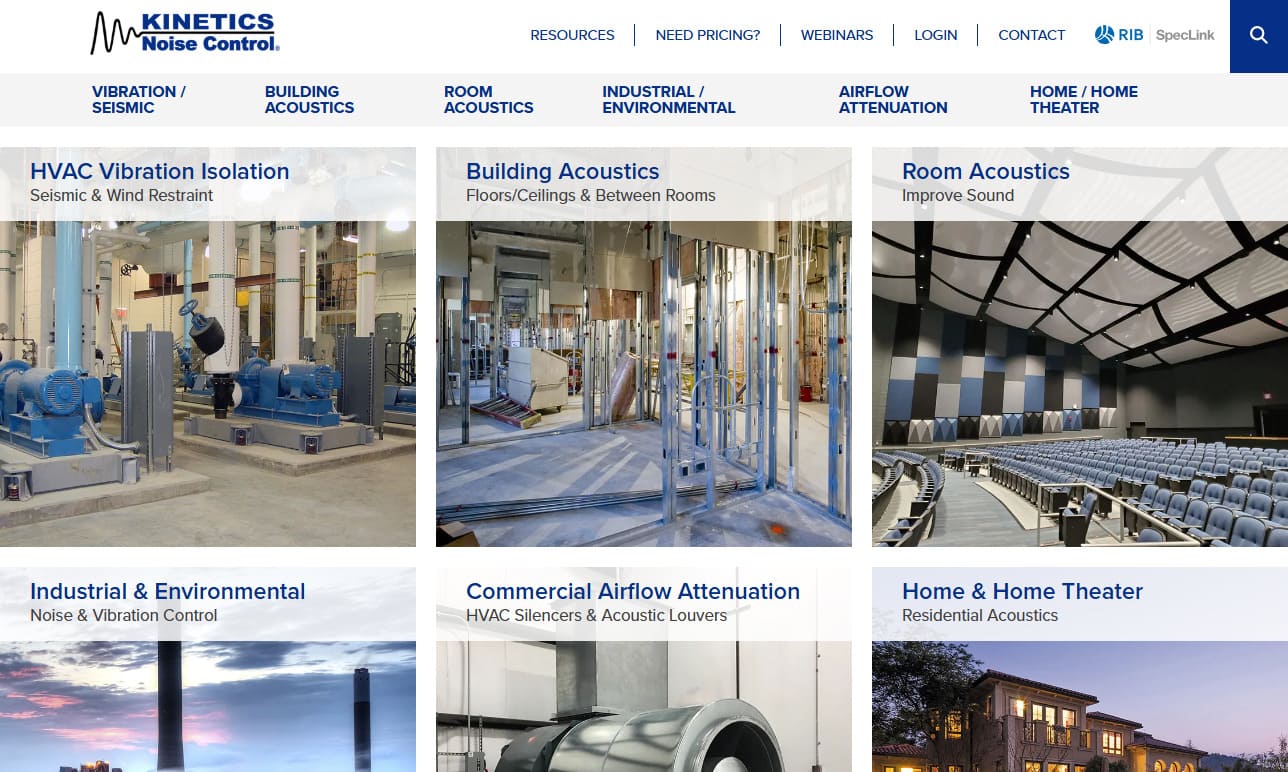
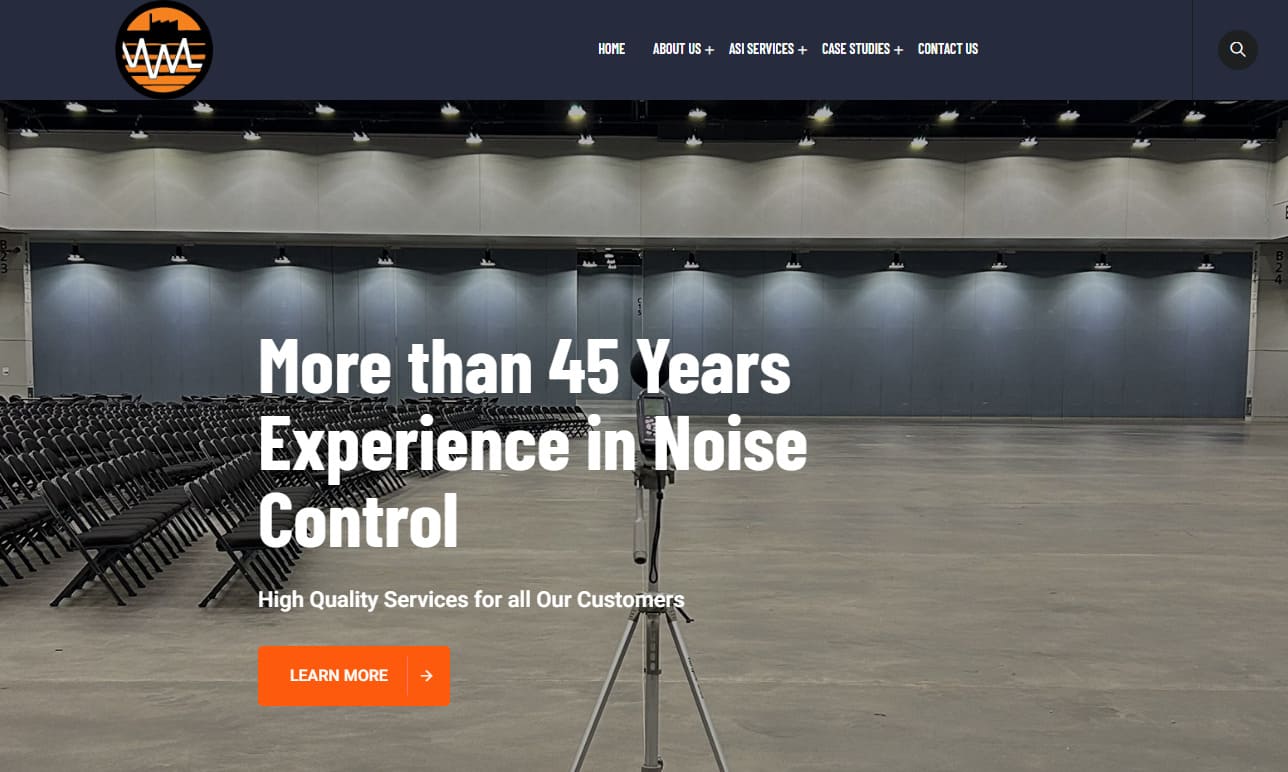

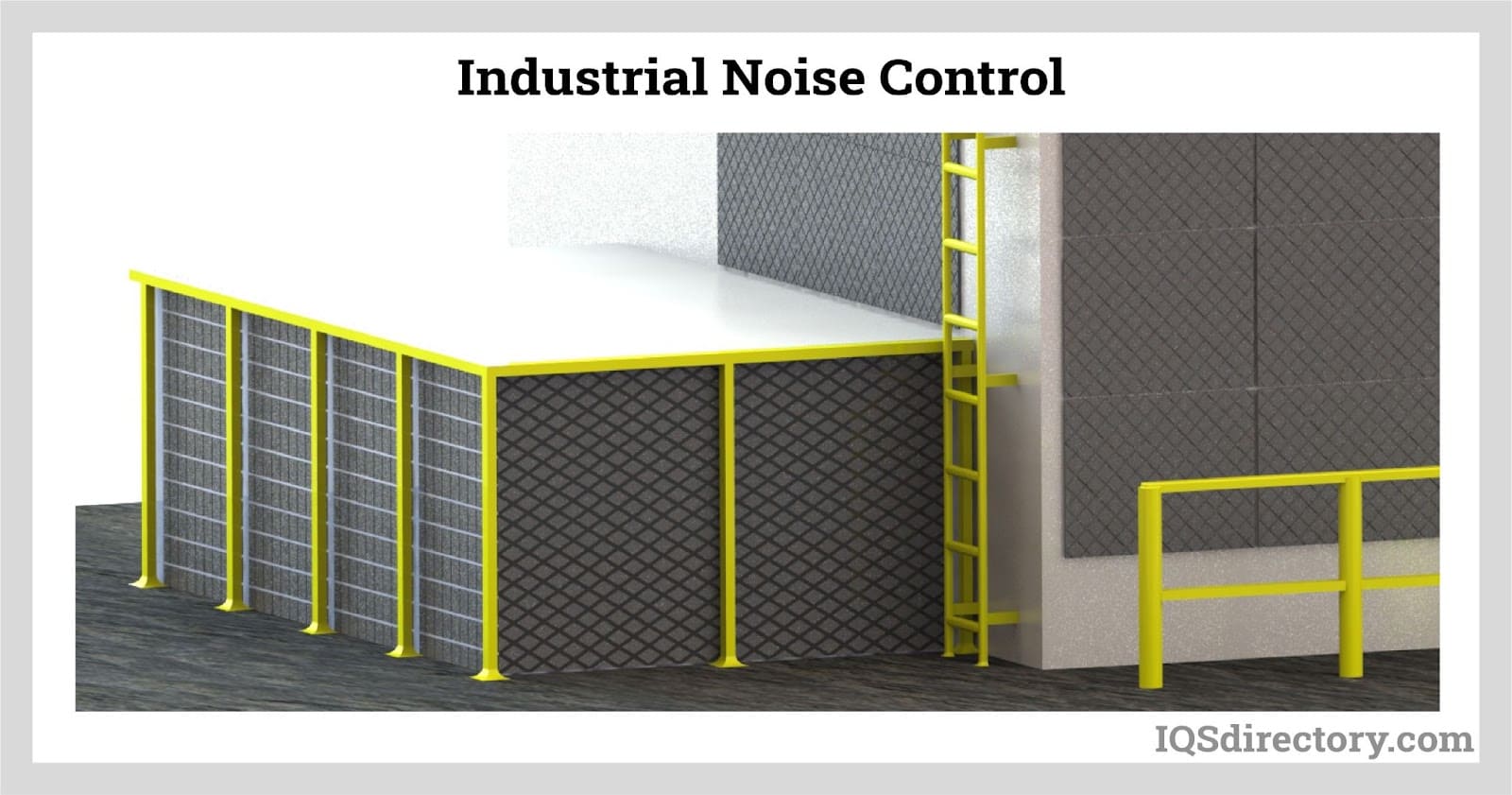
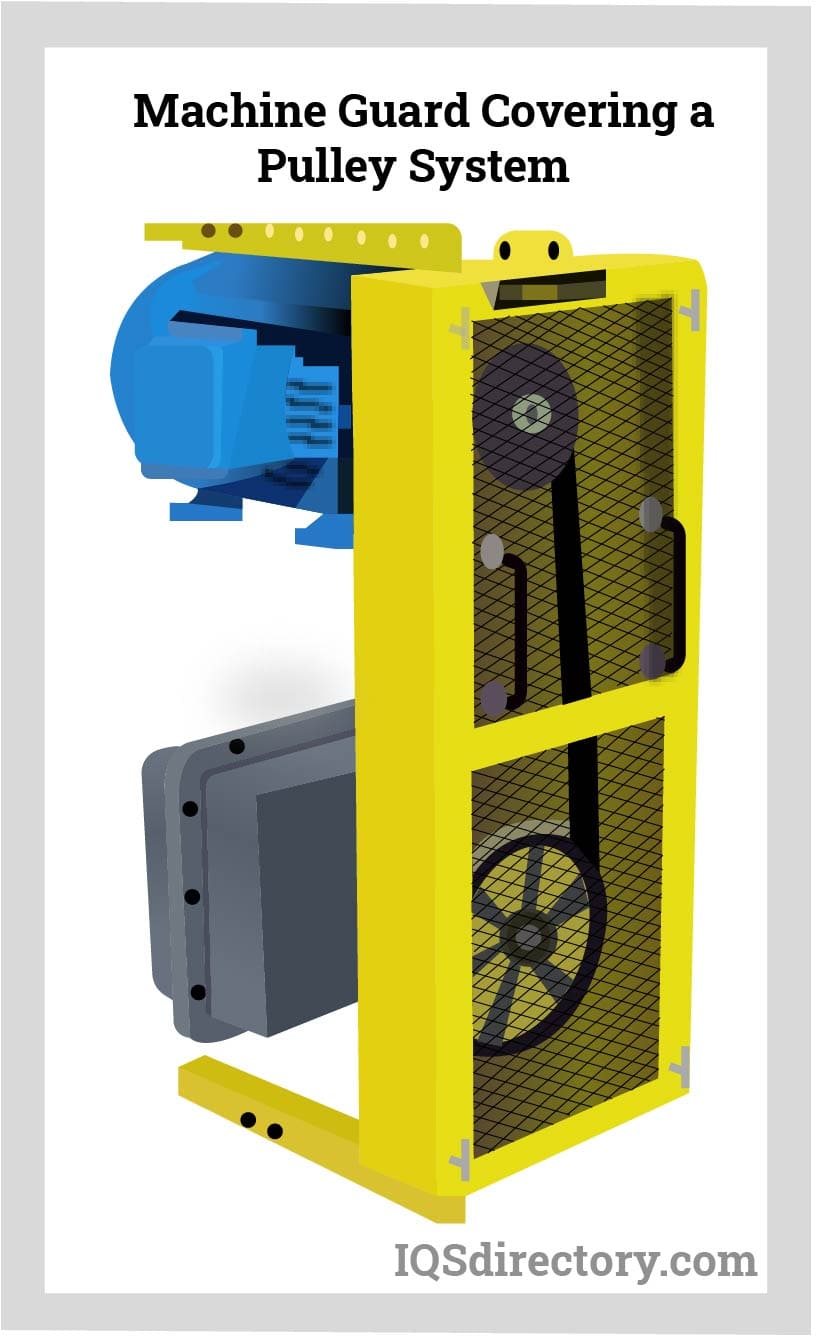
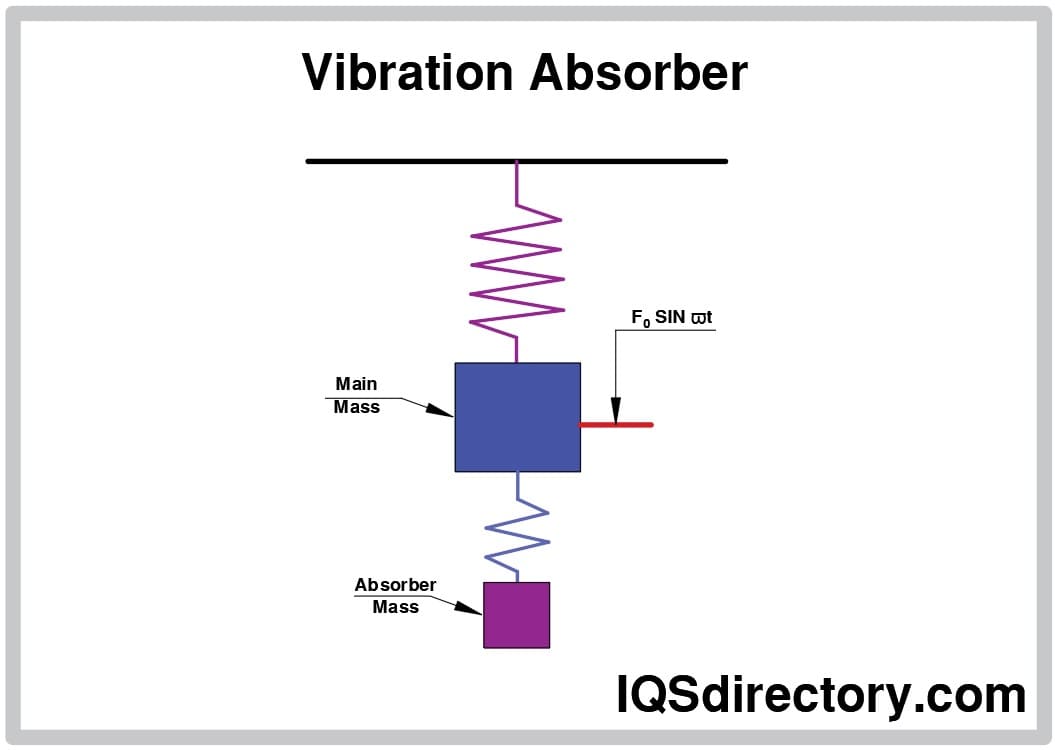
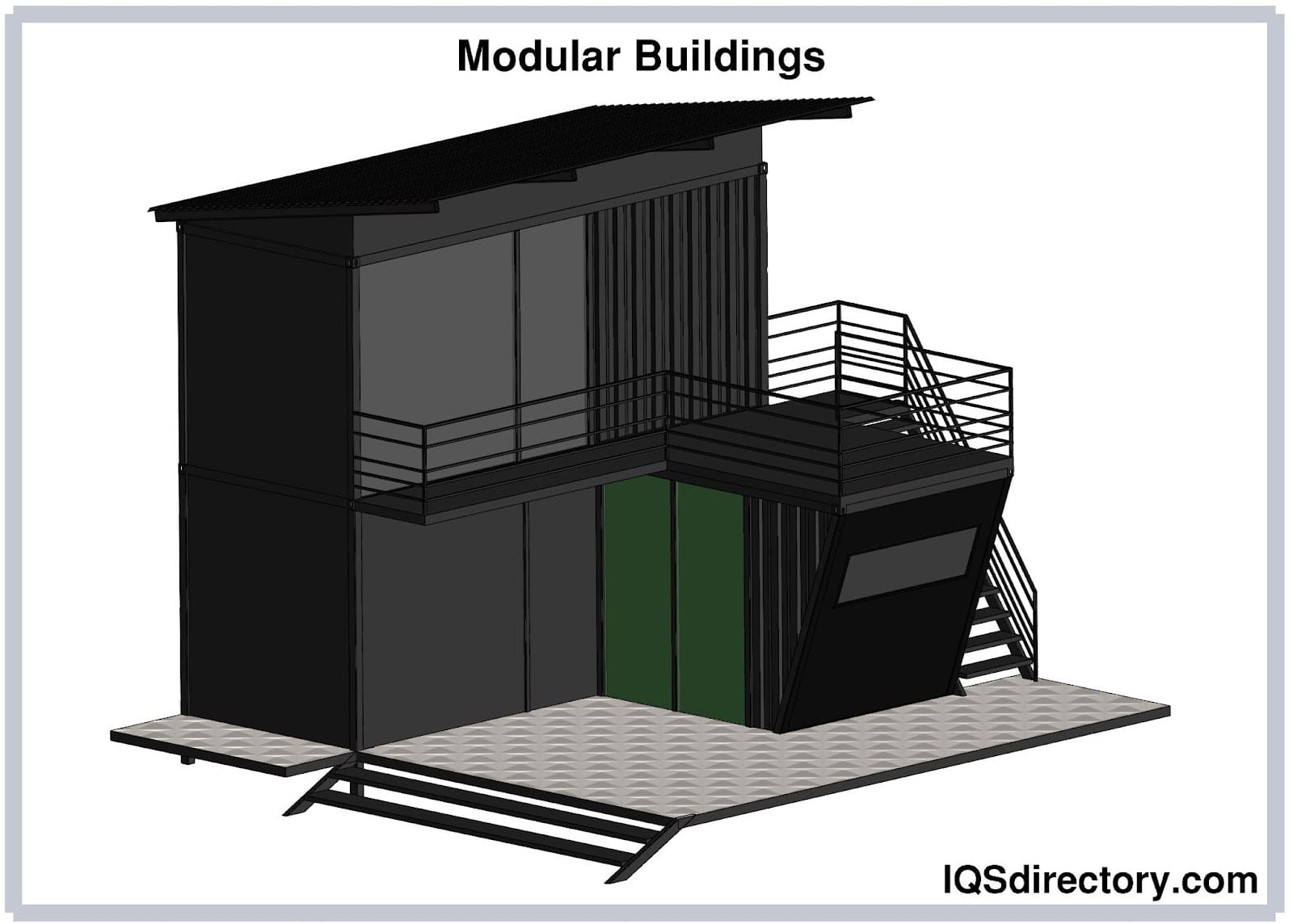
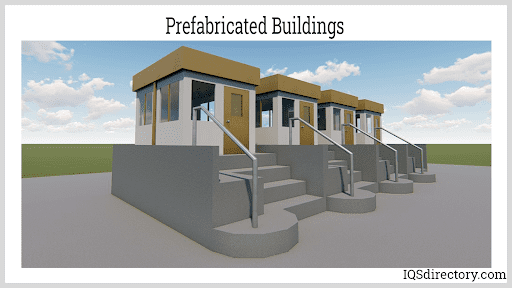
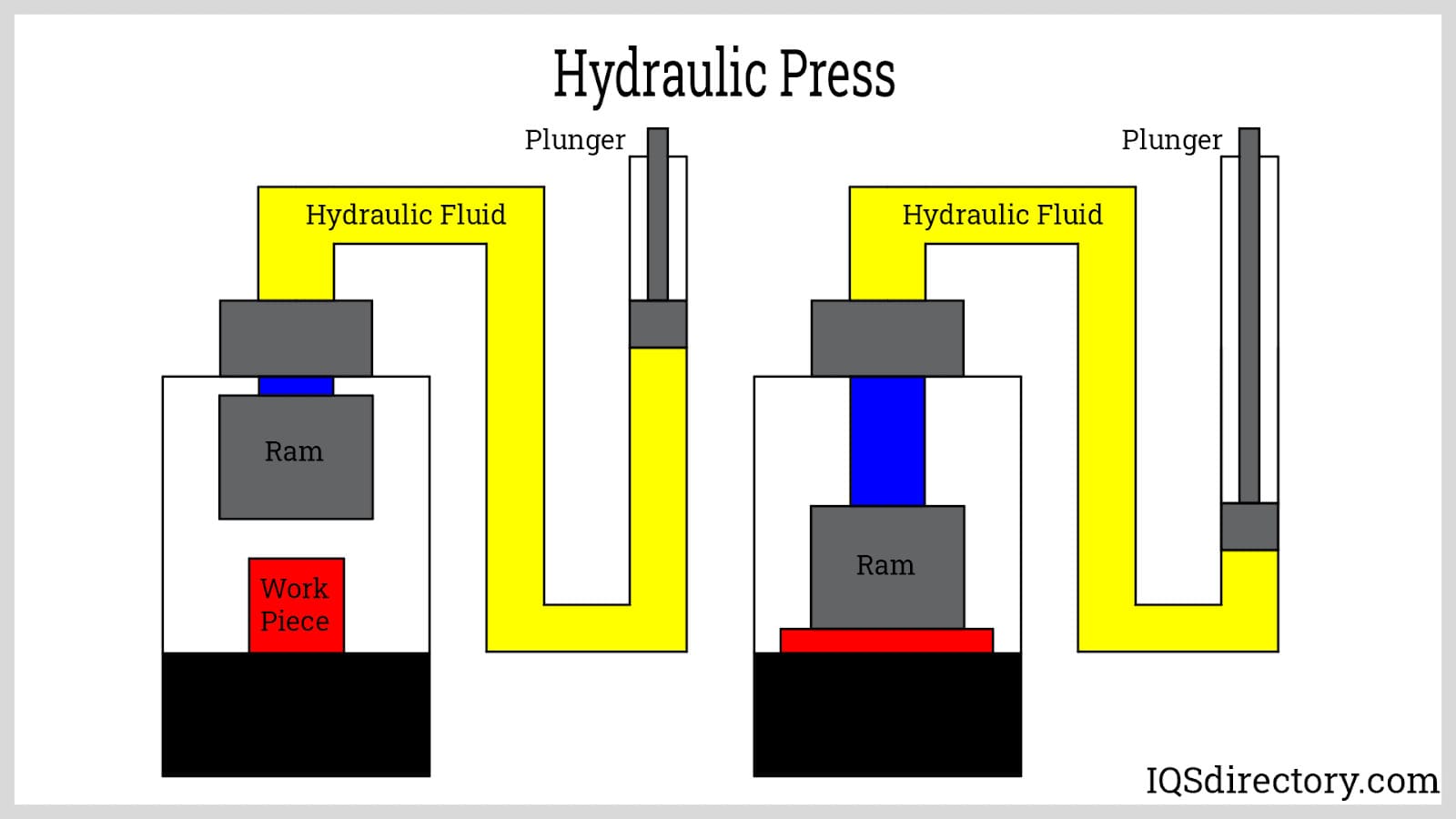
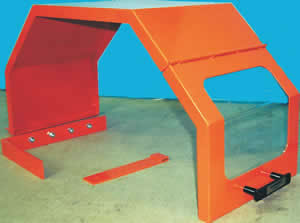 Machine Guards
Machine Guards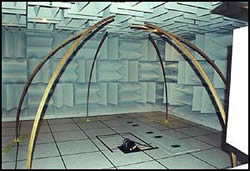 Noise Control
Noise Control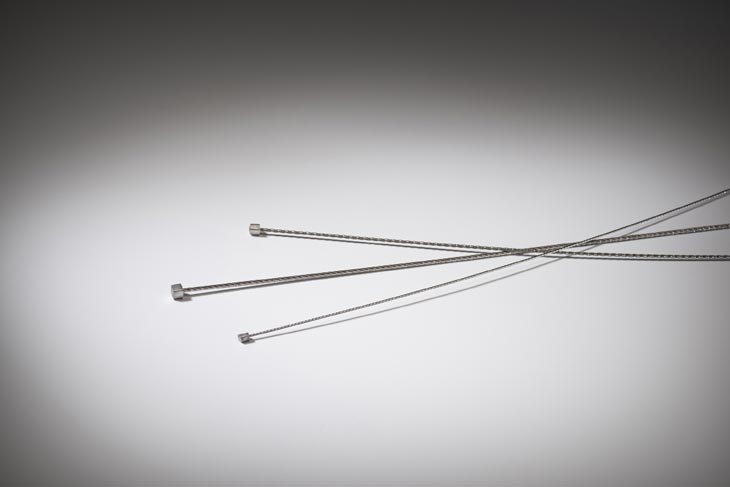 Safety Cables
Safety Cables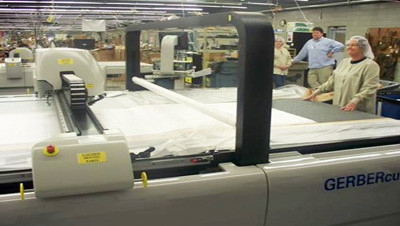 Sewing Contractors
Sewing Contractors Castings & Forgings
Castings & Forgings Bulk Material Handling
Bulk Material Handling Electrical & Electronic Components
Electrical & Electronic Components Flow Instrumentation
Flow Instrumentation Hardware
Hardware Material Handling Equipment
Material Handling Equipment Metal Cutting Services
Metal Cutting Services Metal Forming Services
Metal Forming Services Metal Suppliers
Metal Suppliers Motion Control Products
Motion Control Products Plant & Facility Equipment
Plant & Facility Equipment Plant & Facility Supplies
Plant & Facility Supplies Plastic Molding Processes
Plastic Molding Processes Pumps & Valves
Pumps & Valves Recycling Equipment
Recycling Equipment Rubber Products & Services
Rubber Products & Services